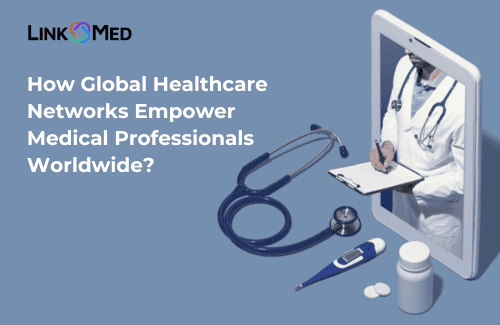How Global Healthcare Networks Empower Medical Professionals Worldwide?

The global medical community today plays a very crucial role in progressing and enhancing practices that lead to better patient outcomes. In modern times, with the advent of digital platforms, healthcare professionals are no longer constrained by geographical boundaries but part of a collaborative ecosystem where knowledge is shared, expertise is exchanged, and innovations discussed. This transformation has been powered by healthcare professional networking platforms, online medical communities, and healthcare social networks providing the infrastructure for a more connected and informed global healthcare workforce.
The Role of the Global Medical Community
The Global Medical Community is a platform where medical professionals, researchers, and healthcare providers/professionals worldwide converge. It acts as a virtual hub for the sharing of best practices, research findings, clinical experiences, and a sense of collaboration that will further enhance and build the capacity of the individual healthcare professional in tackling the complex medical issues faced these days. This helps in research since; for instance, doctors in one region can quickly access the latest research from their counterparts in another, thus putting such new techniques or treatments into operation much faster.
Among the many positives about a global medical community, there is little doubt that one of the most major selling points pertains to pooled resources and knowledge. Many such global exchanges frequently lead to quicker responses to new health crises. During the COVID-19 pandemic, on each continent of the globe, medical professionals were in collaboration to develop treatment protocols, real-time data sharing, and dissemination of vital information to the public.
Enhancing Professional Development through Healthcare Professional Networking
Health professional networking really cannot be overstated. Networking sites provide physicians with the opportunity not only to network with other professionals within their field but also to participate in continued education and mentorship opportunities, even collaborative research projects. Communicating at this level, they will know about the latest developments in medicines and technologies. For example, a surgeon operating in the United States could learn from his Japanese counterpart a new minimally invasive technique, which would improve his results in his practice.
It also fills the existing gap in academia and clinical practice regarding healthcare professional networking. Professionals networking in such a network would be contributing and reaping from advanced research that will lead to more effective treatment and intervention. In this way, the global health workforce gets well-informed, agile, and adaptable.
Connecting through Healthcare Social Networks and Online Medical Communities
Healthcare social networks and online medical communities have gained much popularity over the last years by changing the way healthcare professionals communicate. Such networks enable doctors, nurses, and other medical staff to discuss patient cases, minute trends in a field, and even refer to peer-reviewed studies. With platforms like Sermo and LinkOMed, physicians are much more capable of consulting their peers, whether down the street or on the other side of the globe.
It creates a sense of community and support, which is especially valuable in professions that are under high pressure. Many health professionals use the networks to seek and share experiences, tips, and emotional support from peers who understand challenges only they identify themselves with. Similarly, online medical communities allow free discussions on newly developed treatments, clinical trials, strategies on the management of patients, and thus further innovation in areas of medicine.
